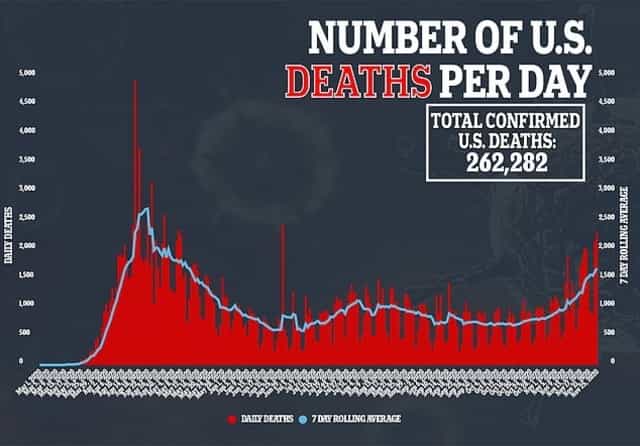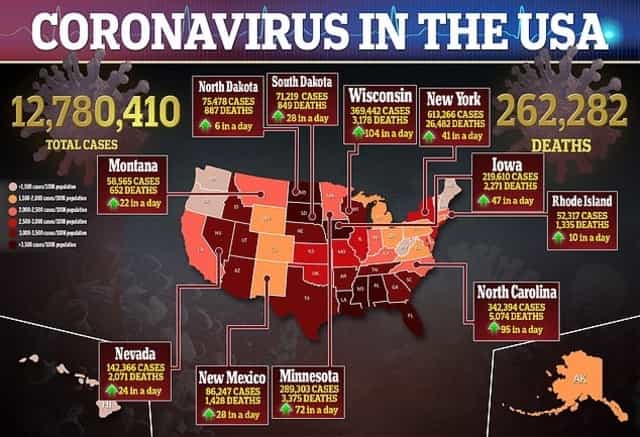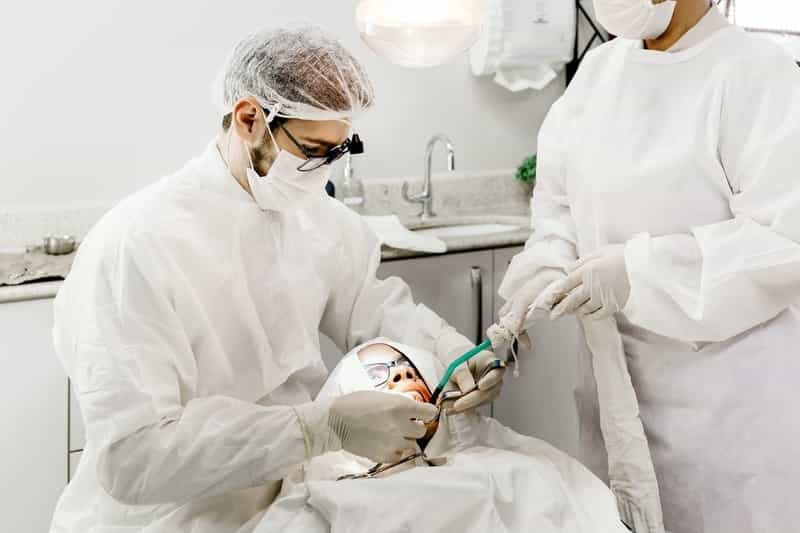- At least three people have reported losing permanent teeth after recovering from coronavirus
- Tissues in the tonsils, tongue and salivary glands contain the ACE2 receptors that coronavirus attacks
- But no research has yet confirmed that this strange phenomenon
Some coronavirus survivors are reporting a bizarre symptom in the aftermath of the infection: Their teeth have fallen out.
Farah Khemili, 43, made it through her bout with coronavirus this spring, but this month, while chewing a mint, the Voorheesville, New York resident discovered that one of her bottom molars was loose.
A day later, the tooth fell out altogether, bloodlessly and painlessly, she told the New York Times.
It didn’t hurt, but Khemili was confused and alarmed – and getting a replacement tooth made will cost her nearly $50,000. She went to the dentist, who told her she was losing bone in her jaws from a history of smoking.
But Khemili also suspected her battle with COVID-19 could have something to do with it. She checked her Facebook support group for long-haulers, and she wasn’t alone. At least one other woman and a 12-year-old boy had lost teeth in a similar manner after having COVID-19.
Dentists have not yet seen any concrete evidence or data that lose or lost teeth are symptoms or consequences of coronavirus.
But since the pandemic began, the list of symptoms of and parts of the human body attacked by coronavirus has only grown longer and incorporated effects that once seemed bizarre, like loss of smell.
Still, a small subset of people who shared two things in common – tooth-loss and COVID-19 – also doesn’t mean that they are connected.
Tooth loss without pain, a clear acute cause or underlying oral condition is very rare, making some dentists skeptical.
‘It’s extremely rare that teeth will literally fall out of their sockets,’ Dr David Okano, a periodontist at the University of Utah in Salt Lake City, told the Times.
We do know, on the other hand, that coronavirus can attack the mouth.
Coronavirus enters human cells through protein ‘doorways,’ known as ACE2 receptors.
These receptors are found on the surfaces of many various types of cells, including lung tissue, blood vessels and, scientists recently learned, cells in salivary glands, tonsils and tongue are richest in ACE2 receptors.


Researchers at the Oral and Craniofacial Research at the American Dental Association Science and Research Institute believe that this may help explain why some patients lose their sense of taste when they have COVID-19, and sometimes continue to be unable to taste property for weeks or months.
‘Our study shows that the mouth is a route of infection as well as an incubator for the SARS-CoV-2 virus that causes COVID-19,’ co-author of the study Dr Kevin Byrd, told Live Science.
Generally speaking, oral bacteria can raise the risk of lung infections, too, so the link between oral and respiratory health is bidirectional.
How exactly coronavirus might lead to tooth loss remains clear, though some scientists urge that dentists remain open-minded to the possibility that COVID-19 could trigger this symptom as well.

Another woman in Khamili’s Facebook group said one of her molar teeth fell out while she was flossing.
‘That was the last thing that I thought would happen, my teeth would fall out,’ said the woman, Eileen Luciano, who lives in New Jersey.
Diana Berrent also posted in a group called Survivor Corp that her 12-year-old son had lost one of his permanent teeth after recovering from COVID-19. He’d never had dental issues before.
Coronavirus is notorious for causing inflammation, which is what ultimately kills many elderly people who catch the virus.
That same inflammation could attack the gums and mouth, which might be able to trigger tooth loss – but cases, where that may be the case, are sporadic so far, and much more research will be required to prove a link between COVID-19 and teeth falling out.
In the meantime, if you’re experiencing any discomfort in your teeth, it’s best to consult a dental expert like this one who does veneers and the best dental implants in Little Falls NJ.
Read more at Dailymail.co.uk


